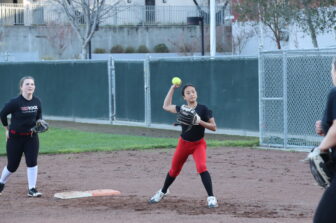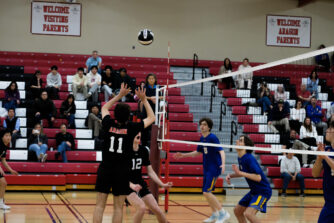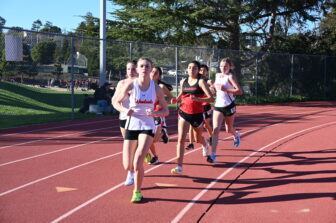
Since its founding in 1961, Aragon has produced a vast number of alumni—some of whom have subsequently found success in a variety of fields. For some, this success is found on an athletic field. There is a large number of Aragon students who have carried out their sports career beyond the high school level and into the collegiate level. Outside of Athletic Director Steve Sell’s office hangs a map of all the Aragon student-athletes who have, since departing, carried over their athletic careers into the collegiate environment.
Previous Aragon student-athletes Alex Manu, Matangi Tonga and Aldo Severson have all had to undergo many changes associated with the massive shift from being on a high school sports to playing for a college team. As their experiences reveal, the competition level among the collegiate level is much higher, the workouts are much more regimented and tolling, and time management between academics and athletics becomes even more demanding.
According to Alex Manu, who called the Aragon basketball court his second home for four years before graduating with the class of 2014 to play for California State University, East Bay, his Aragon playing career definitely helped him prepare for playing on the collegiate level.
Manu said, “High school is definitely a lot less competitive and a lot less stressful, but it did help me to some extent for what I’m doing right now. Playing at Aragon helped me prepare mentally for our games. I still get the same anxiety and adrenaline, but I know how to keep it under control and I’m used to that feeling now.”
Manu, a three-year varsity player and All-PAL player while at Aragon, says that the stress level and rigorous standards in college increases immensely. At East Bay, if Manu is late to practice, he has to run five to seven miles to compensate.
When asked of the transition between his high school and college career, Manu said, “I’ve always had that drive to improve myself and be better, and to know that I can’t gain anything without working hard for it. That’s definitely carried over from high school. I always knew that some day I would want to play at college, I just didn’t know if I was going to be able to.”
According to a recent survey done by Michigan State University, three out of four American kids will play an organized sport during their childhood. Of the three out of four, 20 percent will go on to play in high school. Then of those who play in high school, six percent will participate in collegiate sports, meaning that only 1.2 percent of youth athletes finish their career in college.
When Manu was asked on whether he was planning on taking the professional track, he laughed and stated, “I’m really not sure yet.”
Class of 2006 graduate Matangi Tonga, who played football at Aragon and College of San Mateo before later being signed by the Dallas Cowboys, has already gotten a taste of the professional field. According to Tonga, the transition from high school to college was definitely a challenge in terms of the competition level. “In high school I played with a lot of great players and I was one of the better players on the team. At the collegiate level, everyone on the team is either just as good as you or better so it forces you to always be on top of your game.”
According to Tonga, Aragon helped him prepare for college in the sense he was able to compete in a strong league and against formidable competition. Therefore, particularly during the team’s playoff runs, he would be able to exert himself against high competition.
Aldo Severson, who plays baseball at Skyline College after graduating with the class of 2013, reflects on how playing at high school helped him develop his skills to where he felt comfortable stepping up to the next level. He says, “College baseball is much more serious than high school. There’s definitely more of an emphasis on performing at your best each and every time you play.”
Clearly, college-level sports demand more, as there are certain factors attached that are more mentally, emotionally, and physically demanding than high-school sports. For instance, student-athletes are required to carve more time out of their schedule, amongst a more competitive, challenging atmosphere.
“One thing I take from Aragon was that we always had some great coaches who taught us the game of football. They prepared us real well for the next level. They pushed us to limits that, as athletes, [we] never thought was possible,” says Tonga.



